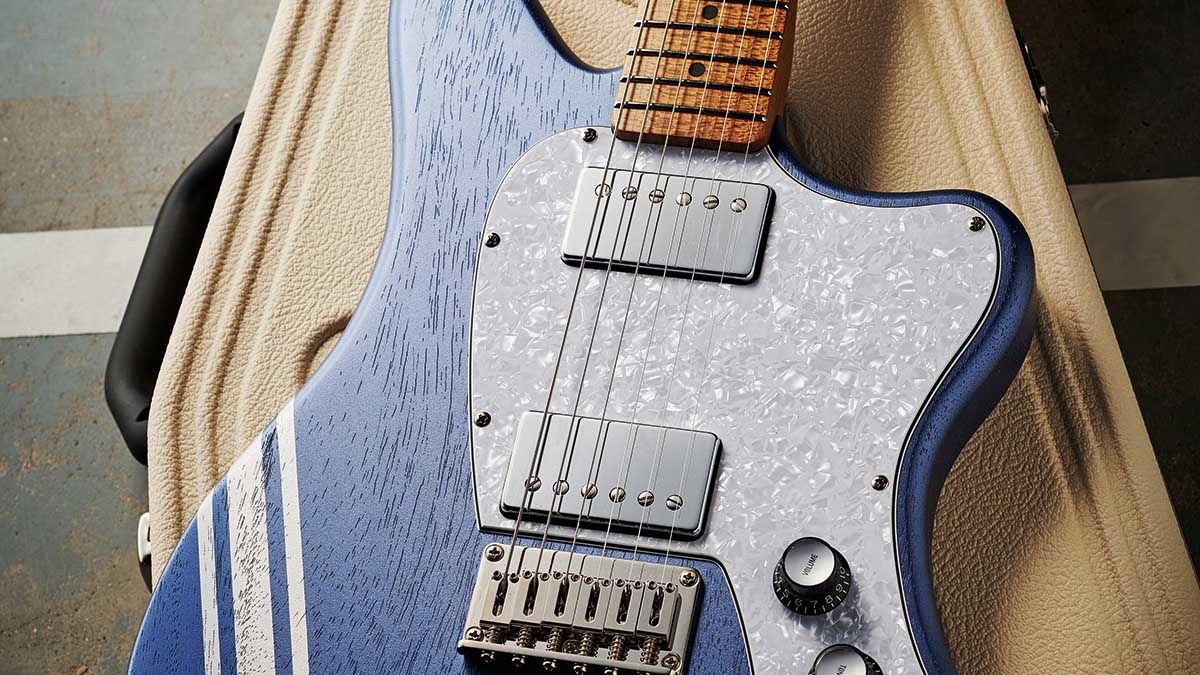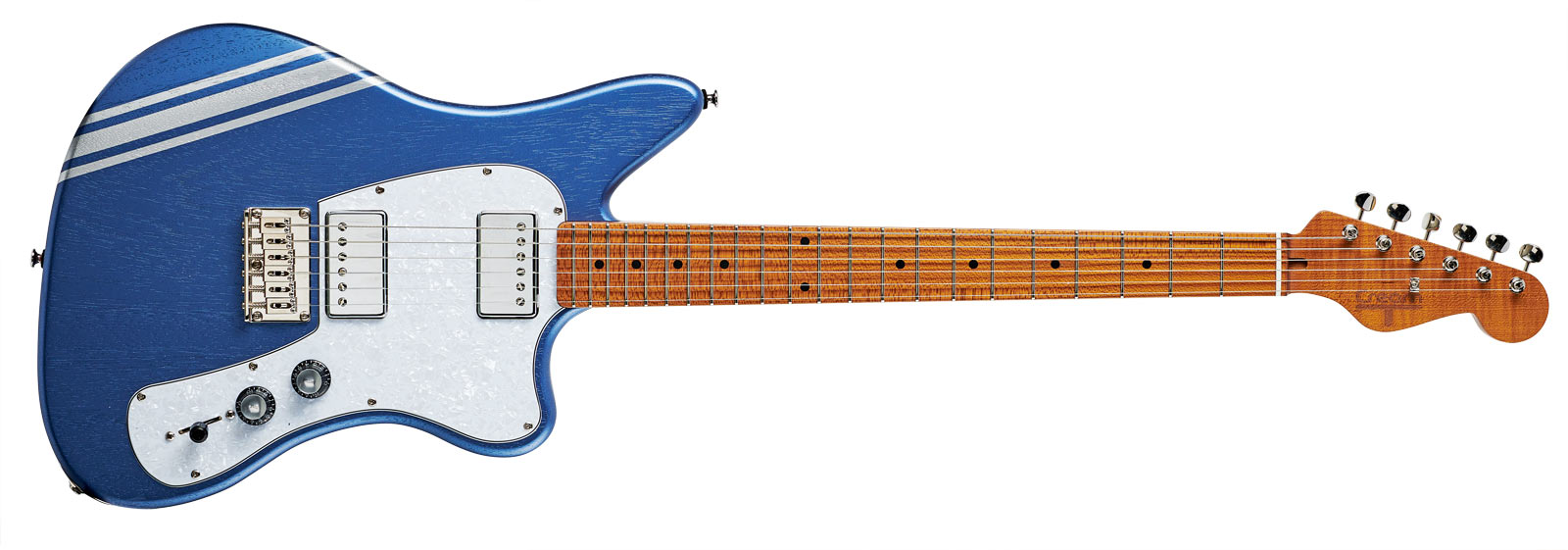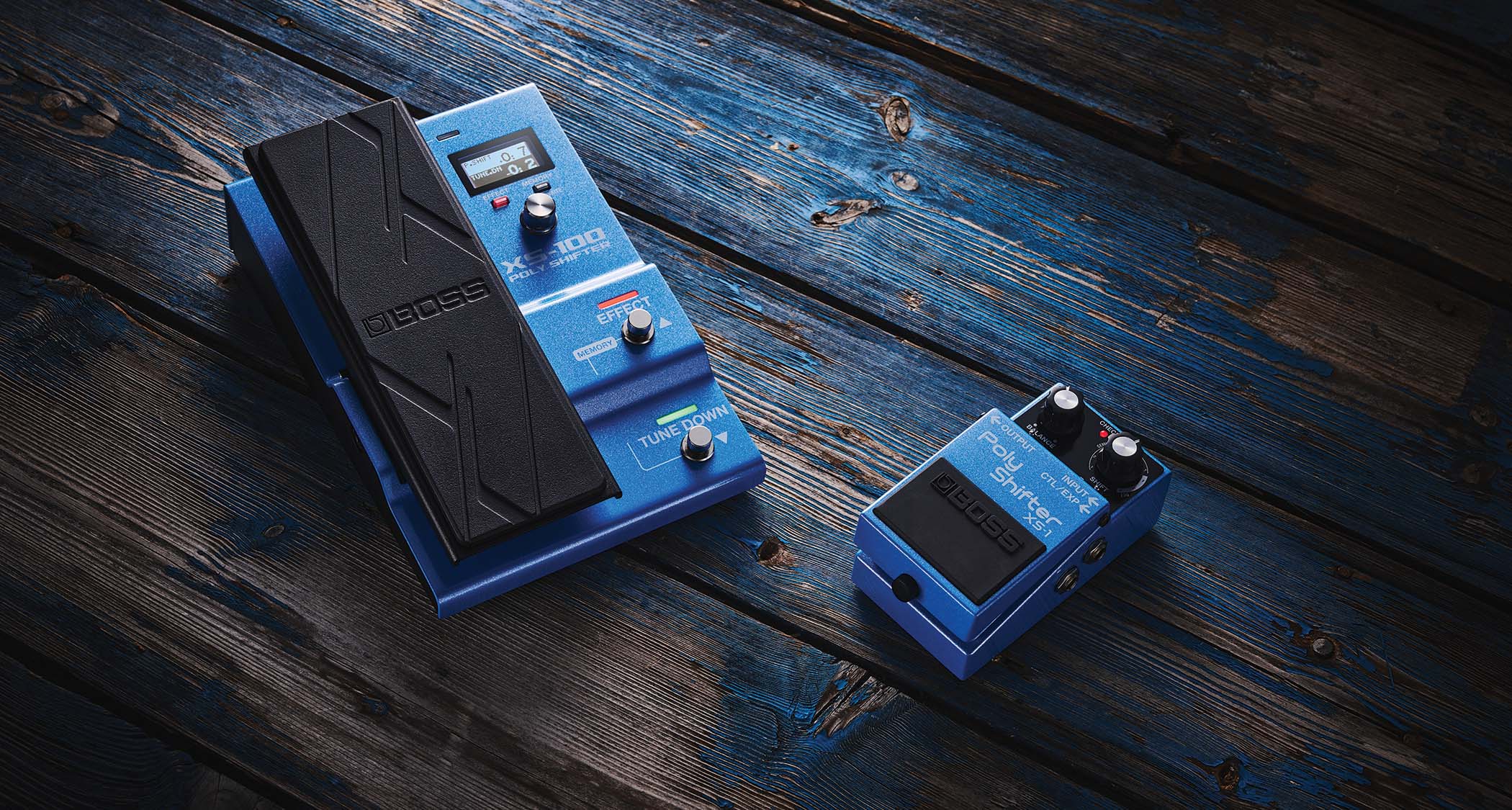Guitar World Verdict
Beautifully crafted in a simple style, the Crossfire is an exceptional electric guitar.
Pros
- +
Simple style.
- +
High-quality build.
- +
Materials, parts.
- +
Cream T humbuckers and pickup swapping.
Cons
- -
Its downsized offset body might be too ‘dinky’ for some.
- -
An offset-style vibrato would be cool!
You can trust Guitar World
We documented the development and launch of Cream T’s first electric guitar, the Aurora, last year and now we have another: the Crossfire. Unlike the more Gibson-esque construction style of the Aurora, the Crossfire is much more ‘Fender’, a straightforward bolt-on with a nod to the fashionable offset style.
Uniquely, the Crossfire Skeleton model, which kicks of the mini-range at £1,799, comes without pickups. What? Well, the Crossfire only uses the Relish pickup swapping system, which is optional on the Aurora, and part of the design concept is to appeal to those customers that may have already purchased a pickup-swapping Aurora, so you can swap its pickups onto the altogether different Crossfire chassis.
Next up is the Crossfire Standard at £2,199, which comes with three pickups; both come with a gigbag and a choice of six standard open-pore finishes. The top-tier model is the Crossfire SRT-6 (£2,799) and includes a cream Hiscox hard case and four pickups, with a choice of three flashier satin metallic colors and optional racing stripes in silver or gold at no extra cost.
Made in the UK by manufacturing hub UK Guitar Builders (UKGB), which also makes PJD Guitars and the soon-to-be- released Seth Baccus Shoreline models, the Crossfire has plenty in common with PJD’s Standard models, not least the offset St John.
But aside from a different and downsized offset outline, the Crossfire, which retains a long Fender scale length, is all-solid (not chambered) and uses lightweight obeche for its body that’s finished here in a very light, open- grained nitrocellulose.
The Crossfire is much more ‘Fender’, a straightforward bolt-on with a nod to the fashionable offset style
There are plenty more similarities to be found, too, including the quarter-sawn roasted maple neck with its separate fingerboard of the same material (rosewood is optional) that uses PJD’s well-received 254mm to 305mm (10- to 12-inch) compound radius.
Crucially, like PJD, the neck uses proper bolts that sit in recessed holes on the small contoured heel, but the headstock is frankly a little more Fender-like, despite the laser-cut Cream T logo, along with simple black dots for position markers.
All the latest guitar news, interviews, lessons, reviews, deals and more, direct to your inbox!
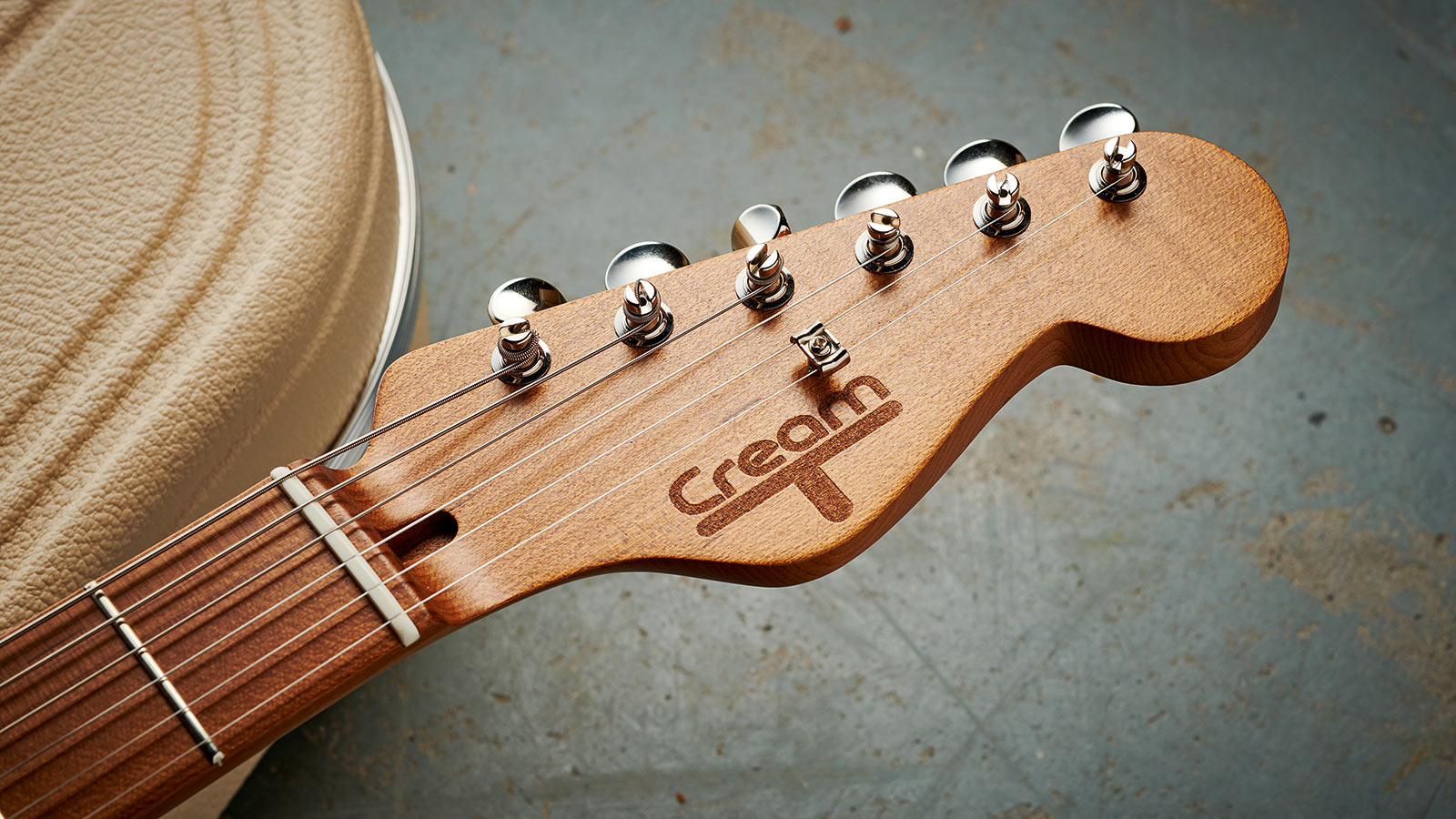
Elsewhere, you’ll find the same high-quality Gotoh tuners and six-saddle through-strung bridge, strap buttons, metal jackplate and even the Gibson-style control knobs, not to mention the excellently cut bone nut and superb fretwork.
Flip the guitar over and there are two open holes on the back that allow you to pull out the pickup and load in new ones in an instant
The main difference is that the Crossfire uses the Relish pickup-swapping system, which you won’t get on a PJD. And unlike the Aurora where you have the option of either pickup swapping or standard pickup mounting, the Crossfire is only available with this innovative technology. Flip the guitar over and there are two open holes on the back that allow you to pull out the pickup and load in new ones in an instant.
Onto controls and we have a simple master volume and tone. What looks like a standard three-way lever switch pickup selector is actually the Free-Way six- position lever switch.
This has three basic positions as you’d expect for bridge, both, and neck, but the lever actually rocks from side to side selecting full humbucking when it’s pushed down and single coil (voicing the outer coils of each humbucker) when it’s pulled upwards. There’s no need for extra pull-switches, the Free-Way does it all – it’s easily the fastest way to coil-split.
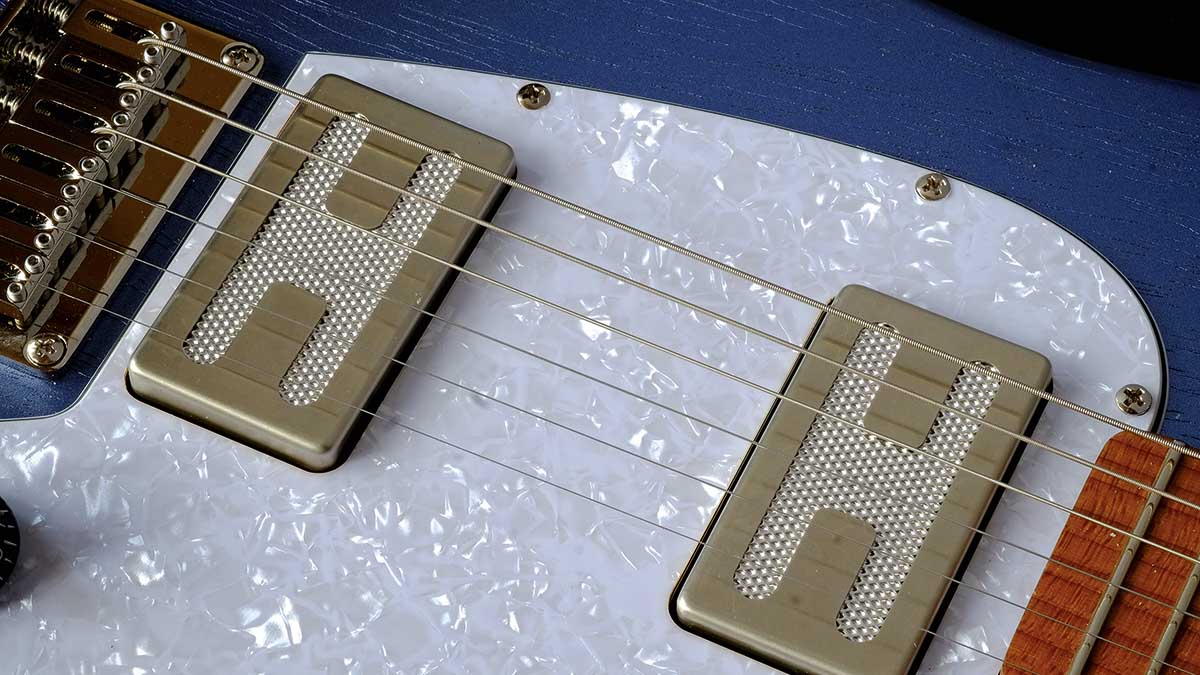
Feel & Sounds
The combination of the downsized offset outline and use of obeche creates a beautifully weighted guitar. At 2.95kg (6.49lb) it’s actually slightly heavier than our reference PJD Carey Standard – a chambered design that weighs 2.63kg (5.79lb) – but like that guitar it feels effortlessly comfortable strapped on or played seated.
The necks, too, outwardly seem very similar, but the shapes are different. The Crossfire is slimmer in depth (20.85mm at the 1st fret, 21.6mm at the 12th) and in its width at the nut (42.74mm), and it has what we’d call a shallow ‘C’ profile. Like the PJD, however, it’s very stable and the setup is very mainstream.
Our only slight criticism is that those pesky height screws on the block saddles stick up a little. We’d be tempted to add a thin neck shim to cure that, but we’ve never done that with this proper bolt-on neck join, to be honest.
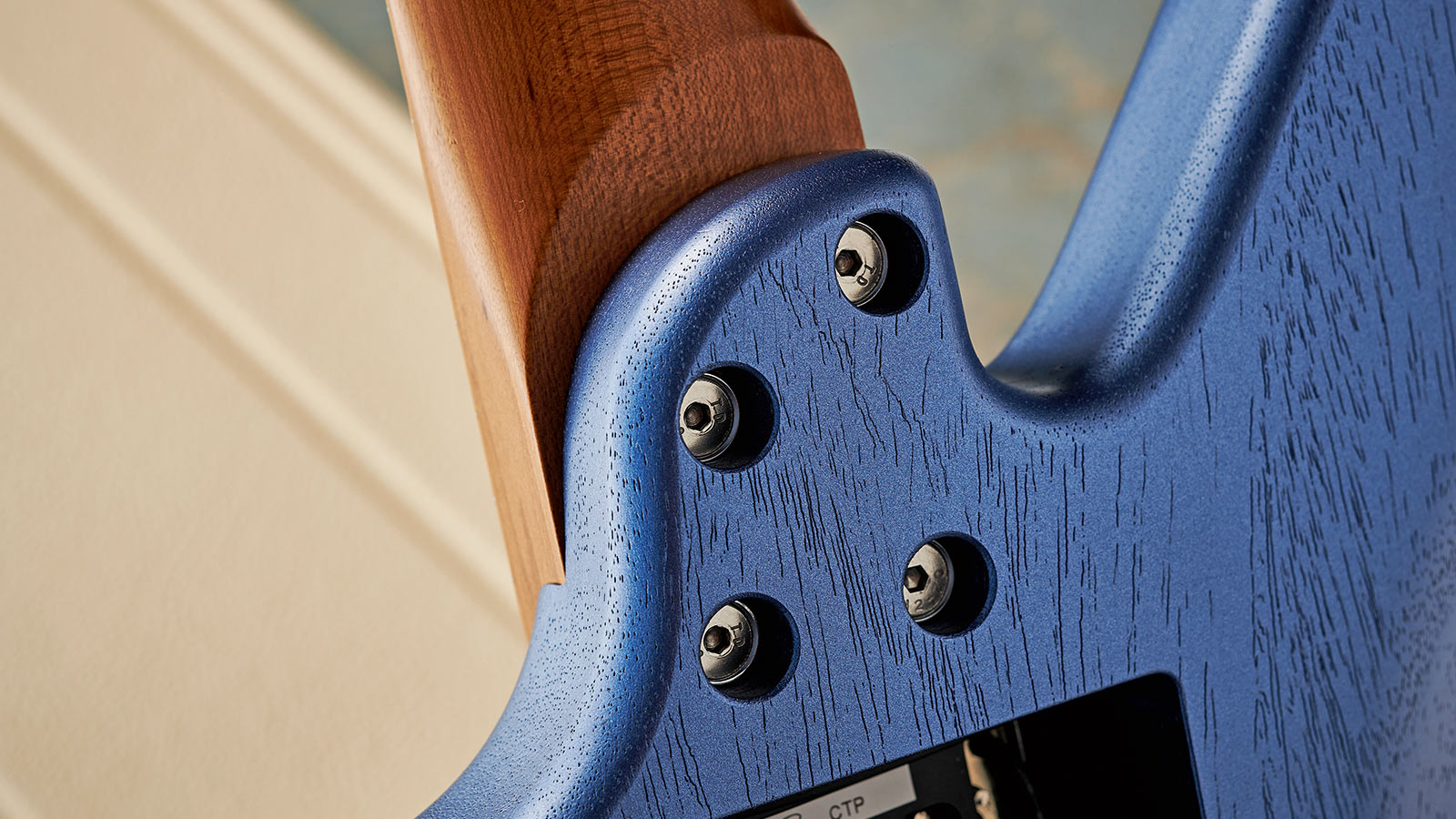
The response of the guitar is very lively and it’s an effortless player, the neck feels so good and actually manages to feel bigger in the hand than those dimensions suggest. The fretwork is superb, the edges of the ’board are lightly rolled, and throughout our test we barely touched the tuners.
The bolt-on recipe suggests more focus on single coils, and this is where the whole pickup-swapping thing comes into its own
When you order your Crossfire, you will be able to select the Cream T pickups you want from a drop-down menu, although the key designs that will be offered are the Whiskerbuckers and Duchess P-90, which are what we used for our test along with an Original Banger.
Mind you, for many players a set of Whiskerbuckers might simply be job done. These are replicas of the actual pickups in Billy Gibbons’ ‘Pearly Gates’ and here on a pretty vibrant, punchy Fender-like platform the lines get blurred between old Les Paul and Telecaster.
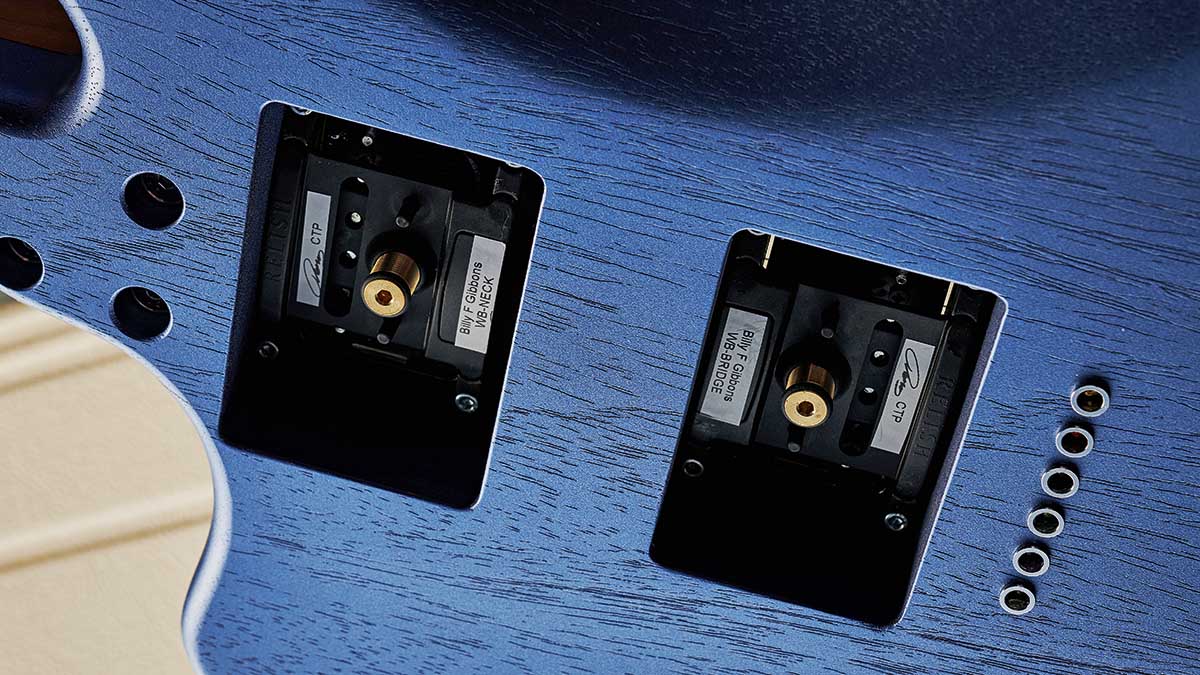
Still, the bolt-on recipe suggests more focus on single coils, and this is where the whole pickup-swapping thing comes into its own.
Swap the Whiskerbuckers for the Duchess P-90 at the neck and this writer’s go-to Cream T pickup, the Original Banger, at the bridge, and the character changes to a rootsy snarl at the bridge – quite possibly the best ‘Broadcaster’ voice imaginable – with a thick single-coil texture from the neck. Both pickups are single coils so the Free-Way switch doesn’t coil-split.
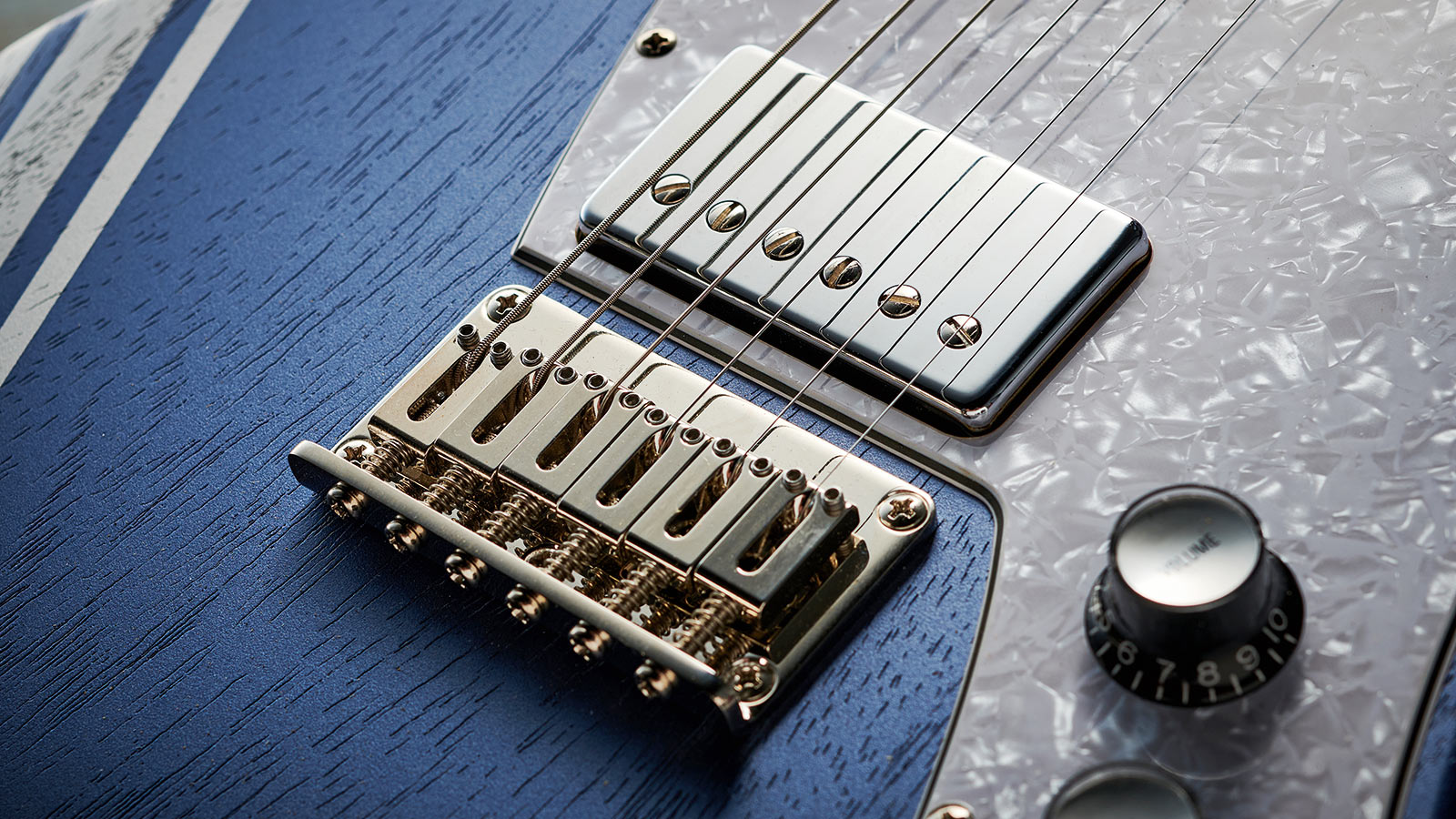
Not quite doing it for you? Put the Whiskbucker back at the bridge and keep the Duchess at the neck for a very boutique-style combo, or put that Original Banger in the neck position (simply pull down its height via the large bolt on the back of the pickup frame).
Getting used to that six-way Free-Way switch takes seconds and it is so fast to use
As we said, getting used to that six-way Free-Way switch takes seconds and it is so fast to use. The volume and tone controls, although closely spaced, fall right under your hand for subtle volume dips, and with it lose a little edge – very handy on gainer brighter amp voicings.
Personally, we’d try a treble bleed circuit because with a Whiskerbucker at the neck things can get a little undefined as you pull back your volume, and the tone takes a little while to actually roll off the highs, which you sort of need just to lose a little spike, especially from the bridge coil-split.
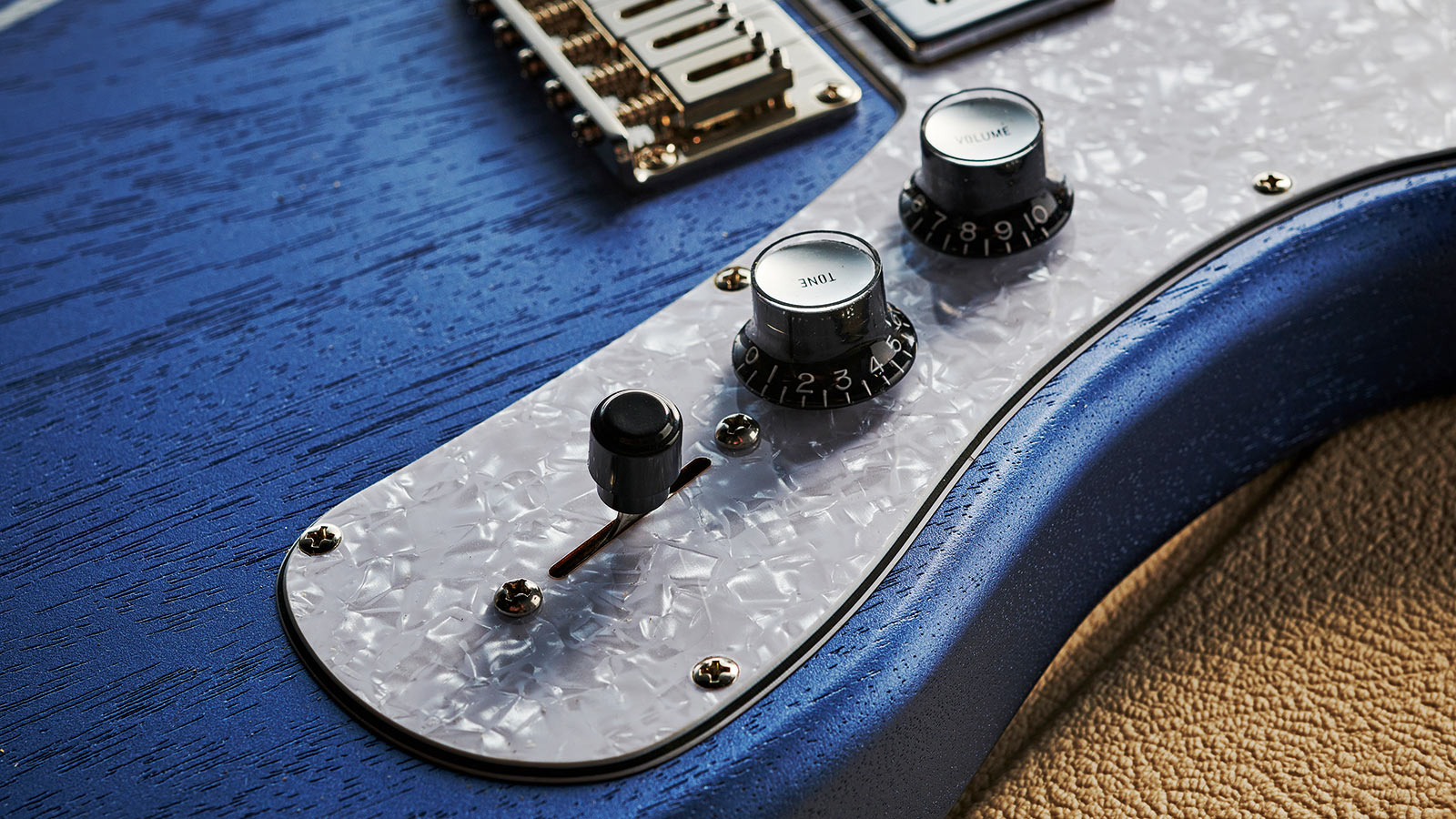
Verdict
On paper it may be just another bolt-on, but the material choice, high-level construction and superb playability elevate it into the big league.
As tested with the Whiskerbuckers, the Crossfire comes across as a classic-style do-it-all drive: vintage voicing with contrasting single-coil splits all accessed in super-fast style from the Free-Way switch.
To be honest, you might not need, or want, anything else, but the pickup swapping means you can reshape the sounds and character in seconds. And to broaden your palette, that single coil Original Banger and the Duchess really expand the voices.
Of course, Sound Affects is offering some classic Seymour Duncan pickups Relish-mounted, too, and we understand other brands will be added very soon. If this is the future, count us in!
Specs
- PRICE: From £1,799 (inc gigbag)
- ORIGIN: UK
- TYPE: Double-cutaway, offset solidbody electric
- BODY: Obeche
- NECK: Quarter-sawn roasted figured maple, C profile, bolt-on SCALE LENGTH: 648mm (25.5”) NUT/WIDTH: Bone/42.74mm
- FINGERBOARD: Quarter-sawn roasted figured maple, black dot inlays, compound 254-305mm (10-12”) radius
- FRETS: 22, medium (Jescar FW55090)
- HARDWARE: Gotoh hardtail bridge w/ block steel saddles and through- body stringing, vintage-style split- post tuners – nickel-plated
- STRING SPACING, BRIDGE: 53mm
- ELECTRICS: 6-way Free-Way lever pickup selector switch (3B3-01), master volume and tone controls
- WEIGHT (kg/lb): 2.95/6.49
- OPTIONS: Rosewood ’board. Skeleton (£1,799) without pickups; Standard (£2,199) 3x pickups (Whiskerbucker set and Duchess neck); SRT-6 (£2,799, our review model) 2x pickup sets, satin metallic colors, optional racing stripes, case
- RANGE OPTIONS: Aurora Standard 2 (£2,499); maple-topped Custom (£2,999) – both pickup-swapping
- FINISHES: Aero Blue Pearl (as reviewed), Graphite Metallic, Inferno Red – thin satin nitrocellulose to body and neck
- CONTACT: Cream T Guitars

Dave Burrluck is one of the world’s most experienced guitar journalists, who started writing back in the '80s for International Musician and Recording World, co-founded The Guitar Magazine and has been the Gear Reviews Editor of Guitarist magazine for the past two decades. Along the way, Dave has been the sole author of The PRS Guitar Book and The Player's Guide to Guitar Maintenance as well as contributing to numerous other books on the electric guitar. Dave is an active gigging and recording musician and still finds time to make, repair and mod guitars, not least for Guitarist’s The Mod Squad.
